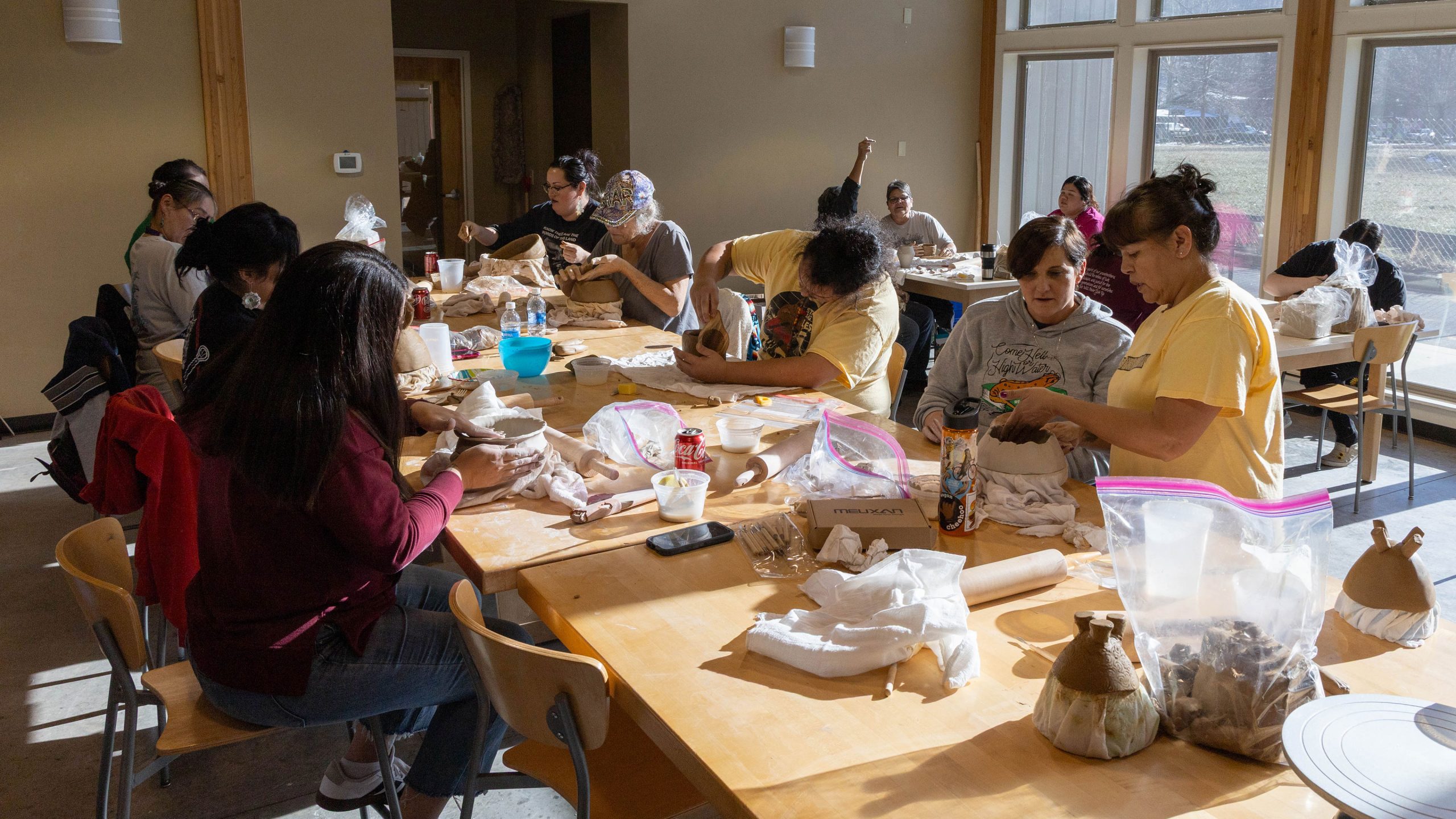
Tara McCoy’s artistic journey began at the age of 12. After enrolling in arts and crafts classes at her school, the seventh grader learned how to do beadwork, pottery, and other traditional Cherokee crafts, continuing these studies through high school on the Eastern Band of Cherokee Indians’ Qualla Boundary. As she gained confidence, McCoy, an enrolled member of the tribe, entered contests and art shows, often winning money or selling her pieces to supportive teachers.
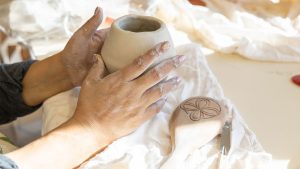
“That’s when I knew it was a business and that you could make money selling your stuff,” she said.
Now McCoy, a full-time artist, is making it her mission to pass along her love and knowledge of traditional art to other Cherokee people.
“When I talk about Tara and the work that she’s doing in our community, it gets me choked up every single time,” said Shana Bushyhead Condill, executive director at the Museum of the Cherokee People in Cherokee, North Carolina, also an EBCI citizen. “Tara is an example of a community member who saw a need and worked to fill it.”
Condill spoke during the May 29 opening reception for “ᏓᏂᏏᏍᎩ ᎦᏓᏆᏟ Didanisisgi Gadagwatli: A Showcase of Pottery from the Mud Dauber Community Workshop,” a new exhibit open through May 2026 that displays pottery pieces McCoy’s students created during the three-month workshop she taught and initiated. The intensive course ties together technique, cultural connection, and practical advice for making and selling ceramic works in the Cherokee tradition.
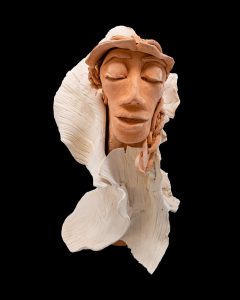
“This is a little bit more than a pottery class,” McCoy said. “You learn Cherokee history, you learn about legend and stories, you learn about plants, but you also learn how to price your pieces, how to be a vendor. It teaches strong identity, working together, having a sense of humor. We talk about potters of the past and potters of the future. It teaches about educating the children.”
The story of the Didanisisgi Gadagwatli, which translates to “Mud Dauber,” begins in 2016, when McCoy and a couple of friends began organizing art markets to help fellow makers sell their work. They soon noticed that not many pottery vendors were participating, and those who did were elderly. McCoy realized that something had to be done to pass their knowledge on to the next generation. In response, she began organizing weekend pottery classes.
But McCoy didn’t see the level of art and craftsmanship rising to the degree she desired, so in 2021 she relaunched the effort as a three-month intensive course, meeting weekly for instruction and mentorship in an education room at the museum.
“Making pottery just connects us back to our ancestors,” McCoy said. “With us being here in our same homeland as our ancestors, we walk in the same areas, the same trails. We dig in the same dirt for our clay, and it’s just like you’re reaching back and touching them or shaking their hand.”
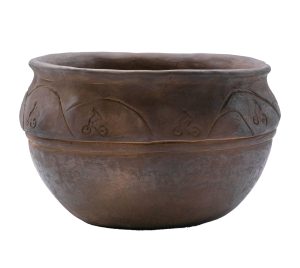
By cultivating a sense of place and connection in her students, McCoy also hopes to help build strong individual character and a desire to pass along those values, intertwined with newfound artistic knowledge, to younger tribal citizens.
“It’s always good to find those things that unite you more than divide you, so for me some of the highlights of the course were really deepening those connections, both past and present, because then I’d come home and share what I’d learned with my family and get so excited,” said Malia Crowe Skulski, a 2025 Mud Dauber graduate and EBCI citizen whose work is displayed at the museum. She also works in resource education at Great Smoky Mountains National Park. “We’d have clay all over the dining room table.”
McCoy “really highlighted the people” in Cherokee stories and encouraged her students to draw on their history when creating their pieces, looking for ways to reconnect with their cultural identity and heal through their art, Skulski said. This was often a challenging task—the students were simultaneously learning the fundamental skills of pottery and attempting to apply them to fresh expressions of their ancient Cherokee culture.
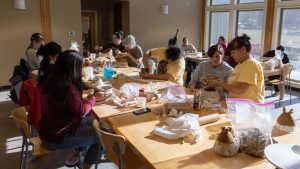
“It’s funny, because they’ll say, ‘I can’t do this, I can’t do that,’ but they can,” McCoy said. “You just have to show them different ways. I like when you’re teaching them their history or some other aspect of pottery, and you can see when it just clicks. You see them realize this is awesome, that it’s important for them.”
The 2025 workshop may be over, but the connections students have made with their culture, with each other, and with the artists inside themselves are just beginning.
“I’m really hopeful that maybe we can have more potters that want to come together,” Skulski said, “to share time and space and that creative energy.”
“ᏓᏂᏏᏍᎩ ᎦᏓᏆᏟ Didanisisgi Gadagwatli: A Showcase of Pottery from the Mud Dauber Community Workshop” is on display through May 2026 at the Museum of the Cherokee People in Cherokee, North Carolina. Learn more at motcp.org.
Subscribe to get the latest posts sent to your email.
The Great Smokies Welcome Center is located on U.S. 321 in Townsend, TN, 2 miles from the west entrance to Great Smoky Mountains National Park. Visitors can get information about things to see and do in and around the national park and shop from a wide selection of books, gifts, and other Smokies merchandise. Daily, weekly, and annual parking tags for the national park are also available.